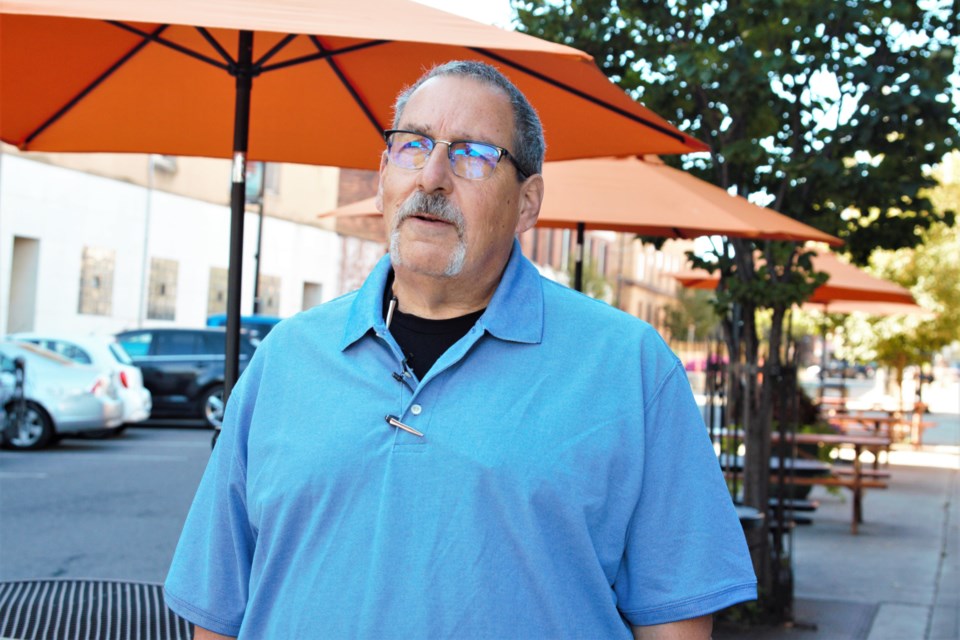THUNDER BAY – With implementation of Ontario’s vaccine certificate system a week away, local businesses say they’re trying to make the best of a difficult situation.
As of Sept. 22, customers will be required to show proof of vaccination along with valid ID to enter businesses identified by the province as higher-risk indoor settings, like restaurants and bars, gyms, and movie theatres.
The certificate system is a tool that could help those businesses stay open given the dangers of the Delta variant, said Thunder Bay Chamber of Commerce president Charla Robinson.
However, she’s worried that implementation is falling to local businesses and their frontline staff, adding new costs and conflicts – and raising questions about how enforceable the rules will be.
“As the day gets closer, I think businesses are getting more and more concerned, because really the onus is completely on the business to implement this proof of vaccination,” she said. “There’s a lot of nervousness – people are feeling really uncomfortable about putting their staff in this situation.”
Businesses will be required to verify the name and date of birth on a vaccine certificate against a customer’s ID before they enter, and ensure it’s been at least 14 days since a second dose.
That will increase staffing requirements and expose frontline staff to potential abuse, said Robinson.
Jenn Bisignano, owner of PUSH Fitness, shares that concern. She’s been surprised by the pushback she’s seen to the policy, even before it’s implemented.
“I was really not thinking it would become as much of an issue as it seems to be becoming,” she said. “I’ve had far more people [than I expected] displeased with the mandate, who are not going to be able to attend the gym for the near future.”
That will impact her bottom line, she said, though she’s more concerned about how it will impact her staff.
She’s had one “quite uncomfortable situation” involving a customer disputing the rule so far, she said, and will make a point of being present at the front desk when the policy rolls out.
“I don’t feel it’s right for me to take the brunt [of people’s frustration], but I most certainly don’t feel it’s right for any of my staff to take the brunt,” she said.
Provincial leaders have advised business owners to call police if they receive harrassment or threats over the vaccine certificate. Local business owners didn't see that as a realistic option in most disputes.
Jim Commuzzi, owner of Rooster’s Bistro, said he’ll likely have to increase staffing to meet the provincial requirements, but remained optimistic about the roll-out. He’s had few issues with customers bucking public health rules in the past, he said.
“Hopefully customers do [cooperate] and we don’t have too much displeasure at the door, and we can keep things moving,” he said. “This is mandated by the… provincial government, so we’ll do whatever it takes and make it work.”
However, Comuzzi said details around how to verify documents and resolve disputes remained unclear, concerns echoed by chamber president Robinson.
There’s no simple way for businesses to be sure the paper vaccine receipts are legitimate, for example, with no reliable anti-fraud features. Customers claiming a medical exemption are required to present a note from a doctor or RN, but there’s no system to verify the notes.
Health Minister Christine Elliot acknowledged Tuesday the system could be vulnerable to fraud, though she suggested the problem would be minimal.
Robinson is optimistic the introduction of an easily scannable QR code and smartphone app, which Ontario has promised by Oct. 22, will resolve some of those issues – though the province has said the public can still use paper receipts after that time.
She expressed disappointment such a system hadn’t been prepared in advance of implementation. Keeping an eye on the bigger picture, though, she said the vaccine certificate was a welcome policy.
“I think many businesses would prefer not to have to be in this position,” she said. “But as the Chamber has said throughout, we need tools to allow businesses to stay open. If the choice is, all restaurants have to close again versus a restaurant is requiring proof of vaccination… I believe most businesses feel they’d rather have that option.”
Both Robinson and Bisignano hoped the government would consider financial support to help businesses impacted by the vaccine certificate requirement with enforcement costs.
